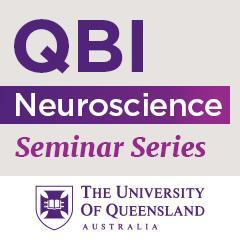Dr Samantha Barton - The Florey, VIC : "Using Human iPSC-derived Organoids to Model Disease"

Speaker: Dr Samantha Barton
The Florey
VIC
Title: Using Human iPSC-derived Organoids to Model Disease
Understanding the underlying causes of neurological disease, and finding effective treatments, remains one of the greatest medical challenges of the 21st century. This can be partly attributed to limitations in current model systems with much of our progress coming from animal models, which do not naturally acquire neurodegenerative disease, or human post-mortem tissue, which limits our analyses to end-stage disease and doesn’t deepen our knowledge of disease onset nor what drives progression. Further, there has been a large focus on neuronal contribution to disease yet our interest is in the role of non-neuronal cells, with particular focus on oligodendrocytes. We therefore aimed to generate improved model systems for investigating Motor Neuron Disease (MND) and Multiple Sclerosis (MS) using human induced pluripotent stem cells (iPSC). Using iPSC, we can generate spinal cord patterned organoids containing an integrated network of neural cell types including motor neurons, interneurons, astrocytes, microglia and, of particular relevance to us, myelinating oligodendrocytes. The ability to generate mature, compact myelin allows us to model human oligodendrocyte function in vitro to investigate disease pathways in MND and MS as well as screen drugs for phenotypic rescue.
About Neuroscience Seminars
Neuroscience seminars at the QBI play a major role in the advancement of neuroscience in the Asia-Pacific region. The primary goal of these seminars is to promote excellence in neuroscience through the exchange of ideas, establishing new collaborations and augmenting partnerships already in place.
Seminars in the QBI Auditorium on Level 7 are held on Wednesdays at 12-1pm, which are sometimes simulcast on Zoom (with approval from the speaker). We also occassionally hold seminars from international speakers via Zoom. The days and times of these seminars will vary depending on the time zone of the speaker. Please see each seminar listed below for details.



